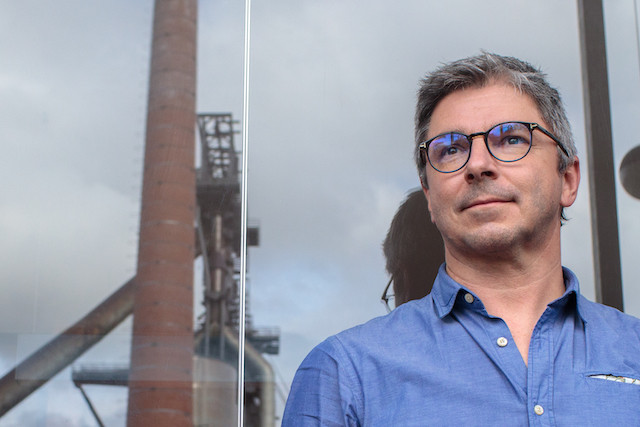Visitors to the Rockhal in Esch-Belval recently will have noticed one striking innovation at the venue. The bar in the foyer, once a place swamped by long queues of thirsty punters, is now a state-of-the-art installation with increased capacity and super-fast draught pumps. Toth explains that venues like the 6,000 capacity Afas Live (formerly the Heineken Music Hall) in Amsterdam have 60 metres of bar. “That is unthinkable inside the Rockhal, so we had to really take a deep look into the possibilities that we have.” The result is a bar with three sides that doesn’t intrude too much into the foyer space and now has 13 points of sale instead of 8 and three pouring islands that have the ability to pour four 0.5l beers in around 8 seconds.
The new bar and new lighting concept also tackles another challenge the venue has faced since it opened, namely that “the foyer must be big enough for the big capacities and must not be too big for the smaller capacities. I think it is now more welcoming.”
Customer experience
The upgrade, complete with digital signage that can display different content and information that will allow the venue “to talk in a better way to our customers”, is all part of what Toth hopes will significantly improve audience hospitality at the Rockhal. After all, he says, efforts have been made constantly since the venue opened in 2006 to ensure that the artists are happy, with new technology allowing more flexibility to host shows of pretty much any size and shape--including a memorable 3600 show by Arcade Fire in 2017, or a string of performances by Cirque du Soleil in 2016.
But there’s even more in the pipeline for 2021 to enhance what Toth calls the customer experience. “We're thinking about bringing in a balcony that floats over the floor to offer more flexibility to the music fans that come to the shows. There's a trend in big venues that for a lot of shows people would like to sit. But if we bring in a bleacher, it takes out a lot of capacity.” Other ideas include extending events with an “after-show” so that those fans who don’t want to rush home after a gig can stay on, relax and enjoy some music, food and drinks.
Toth also wants to develop the connection between the Rockhal as a venue and the Rocklab, the third-floor space that houses rehearsal rooms, a recording studio and media library for use by musicians. For example, before playing a show, artists would give masterclasses to musicians and fans.
There’s the Live Europe network of venues committed to promoting up-and-coming European artists, there’s the INES programme for European showcase festivals like Sonic Visions, and there’s Multipistes, which sees players in the Greater Region scout, support and promote bands and artists from these territories. Around 500 professionals descend on the Rockhal, but Toth explains that the event needs to maintain a format that is manageable. “It's really important for us that at the event, everybody can literally speak to everybody else.”
Looking even further ahead to 2022, when Esch will be the cultural capital of Europe, Toth is wary of revealing any details of the discussions he has had with the organising committee but says that the Rockhal will be pushing innovation and creativity. “You know, the Sonic Visions and Rocklab spirit will be out forward. And then, we're working on some very crazy things.”
A longer version of this article appeared in the November/December 2019 issue of Delano.
